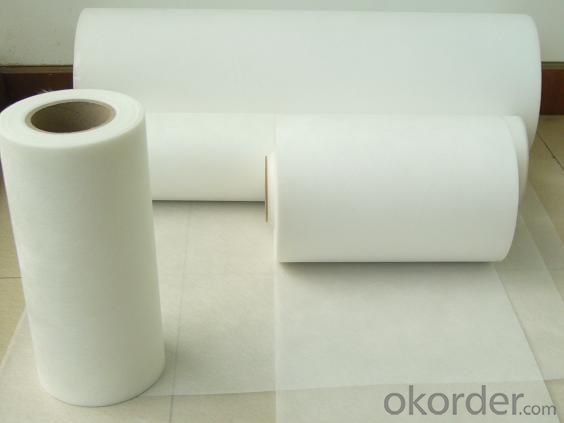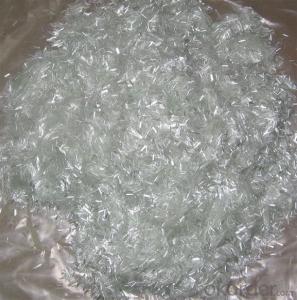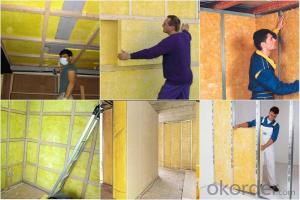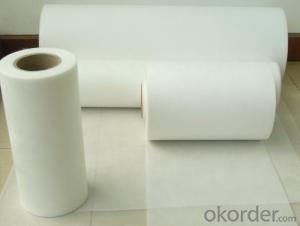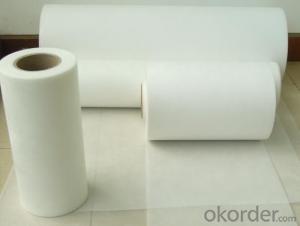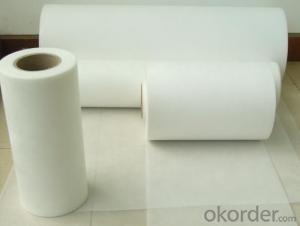E or C Glass Fiberglass Mat Tissue Surface Mat
- Loading Port:
- China Main Port
- Payment Terms:
- TT or LC
- Min Order Qty:
- 72000m2 m²
- Supply Capability:
- 1440000m2 Per Month m²/month
OKorder Service Pledge
OKorder Financial Service
You Might Also Like
1.Brief Introduction
Surfacing Tissue mainly used in the surface layers of FRP products. It features even Fiber distribution, soft feel, level and smooth fiber surface, less glue content, quick resin soak and good pattern fitness. It can improve the product surface property on corrosion resistance, compressive strength, seepage resistance, and longer service life. It is also suitable for spraying; pattern pressing and other FRP pattern technology.
2.Characteristics
Fast breakdown in styrene
Fiber dispersed evenly
Low binder content
Superior acid corrosion resistance
Area Weight 30+/-3 Binder Content % 6-9 Tensile Strength MD N/125px ≥35 Soaking time S ≤10 Moisture content % ≤0.5 Width length mm 1270 Roll Diameter m 300 Paper Core Internal Dia mm 76
3.SpecificationsItem
Unit
Specification
g/m2
Special specification can be produce according to customer requirements.
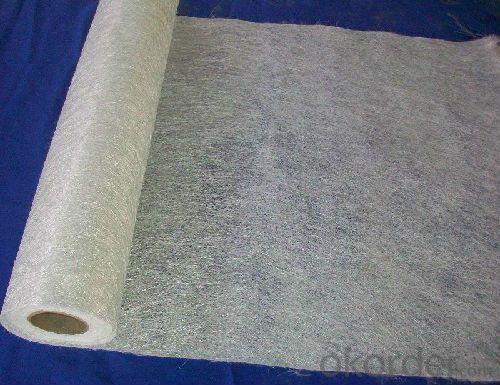
4.FAQ
a.Pacage
Each Surface Tissue is wound onto a paper tube which has an inside diameter of 76mm and the mat roll has a diameter of 330mm. The mat roll is wrapped up with plastic film,and then packed in a cardboard box or wrapped up with kraft paper. The rolls can be vertically or horizontally placed. For transportation, the rolls can be loaded into a cantainer directly or on pallets.
b.Product storage:
Unless otherwise specified, Chopped Strand Mat should be stored in a dry, cool and rain-proof area. It is recommended that the room temperature and humidity should be always maintained at 15℃~35℃ and 50%~75% respectively.
- Q: Does fiberglass mat tissue require any special maintenance after installation?
- No, fiberglass mat tissue does not require any special maintenance after installation.
- Q: Can fiberglass mat tissue be used for mold-making?
- No, fiberglass mat tissue is not typically used for mold-making. Fiberglass mat tissue is a lightweight material made from randomly oriented glass fibers bonded together with a binder. It is commonly used in insulation, construction, and automotive industries for reinforcement purposes. For mold-making, other materials such as silicone, latex, or polyurethane are more commonly used. These materials have the necessary properties to create flexible and accurate molds that can reproduce intricate details. They are also easy to work with and can be poured or brushed onto the original object to create a mold. Fiberglass mat tissue, on the other hand, lacks the flexibility and accuracy required for mold-making. It is not designed to be easily molded into complex shapes or capture fine details. Additionally, it may not provide the desired level of flexibility needed to remove the original object from the mold without causing damage. Therefore, it is recommended to use specific mold-making materials that are specifically designed for this purpose, rather than attempting to use fiberglass mat tissue.
- Q: Does fiberglass mat tissue provide any mold resistance?
- No, fiberglass mat tissue does not provide any mold resistance.
- Q: Does fiberglass mat tissue provide good thermal conductivity?
- No, fiberglass mat tissue does not provide good thermal conductivity.
- Q: What are the typical mechanical properties of fiberglass mat tissue?
- Fiberglass mat tissue possesses high tensile strength, stiffness, and dimensional stability, which are its typical mechanical properties. It is recognized for its remarkable ability to resist breakage and deformation when subjected to stress, making it suitable for applications that necessitate durability and structural integrity. Furthermore, it demonstrates good impact resistance, enabling it to endure external forces without substantial harm. Moreover, fiberglass mat tissue exhibits a low coefficient of thermal expansion, indicating that it is less susceptible to expanding or contracting due to temperature changes, resulting in enhanced dimensional stability. These characteristics render fiberglass mat tissue a favored choice in diverse industries like construction, automotive, and aerospace, wherein strength and reliability are pivotal considerations.
- Q: How does the porosity of fiberglass mat tissue affect its performance?
- The performance of fiberglass mat tissue is significantly impacted by its porosity. Porosity refers to the presence of small pores or holes in the material, which affect its ability to absorb and retain fluids, as well as its strength and durability. To begin, the absorption capability of fiberglass mat tissue is influenced by its porosity. A higher porosity allows the tissue to absorb more fluids, such as resins or binders, during manufacturing. This absorption is crucial as it ensures better adhesion between the fiberglass mat and the bonding material, resulting in a stronger and more durable final product. Next, the strength and stiffness of the fiberglass mat tissue are affected by its porosity. A lower porosity generally indicates a higher density and a more tightly packed structure, resulting in increased strength and stiffness. This is beneficial in applications where the material needs to withstand high mechanical stresses or act as a structural component. Furthermore, the thermal and acoustic insulation properties of the fiberglass mat tissue are impacted by its porosity. A higher porosity typically leads to better thermal and acoustic insulation due to the increased number of air pockets within the material. These air pockets act as barriers, reducing heat transfer and sound transmission, making the material suitable for applications that require thermal or acoustic insulation. Moreover, the filtration capabilities of the fiberglass mat tissue can be influenced by its porosity. If the material has a high porosity, it can effectively trap and retain particles, making it suitable for use in filtration systems. Conversely, a low porosity may allow for better flow rates, making it more suitable for applications where fluid permeability is important, such as drainage applications. In conclusion, the porosity of fiberglass mat tissue has various effects on its performance. It determines its absorption capability, strength, stiffness, thermal and acoustic insulation properties, filtration capabilities, and fluid permeability. Therefore, understanding and controlling the porosity of fiberglass mat tissue is crucial to ensure optimal performance in a wide range of applications.
- Q: What are the different reinforcement patterns available for fiberglass mat tissue?
- Some different reinforcement patterns available for fiberglass mat tissue include random pattern, grid pattern, and diamond pattern. Each pattern offers different levels of strength and durability depending on the specific application and requirements.
- Q: Can fiberglass mat tissue be used for ballistic protection?
- Fiberglass mat tissue can be used for ballistic protection to some extent, but it may not offer the same level of protection as other materials specifically designed for this purpose. Fiberglass mat tissue is typically used in applications such as insulation, reinforcement, and fire resistance due to its high strength and heat resistance properties. However, when it comes to ballistic protection, there are more specialized materials available that are specifically engineered to withstand the impact of bullets or other projectiles. These materials often include aramid fibers (such as Kevlar) or ultra-high-molecular-weight polyethylene fibers (such as Dyneema) which are much more effective in providing superior ballistic protection. If ballistic protection is the primary concern, it is recommended to choose materials specifically designed for this purpose rather than relying solely on fiberglass mat tissue.
- Q: What are the advantages of using fiberglass mat tissue in construction?
- Using fiberglass mat tissue in construction offers several advantages. Firstly, it provides excellent reinforcement and strength to construction materials, enhancing their durability and resistance to cracks, impacts, and weathering. This makes it an ideal choice for reinforcing concrete, roofing materials, and composite products. Secondly, fiberglass mat tissue is lightweight and easy to handle, making it convenient for construction purposes. Unlike heavy steel reinforcements, it can be easily cut, shaped, and applied without requiring specialized tools. This saves both labor and time, resulting in cost savings. Additionally, fiberglass mat tissue is non-corrosive and non-conductive, making it suitable for various environments. It remains unaffected by rust or degradation, even in harsh conditions, ensuring the longevity and reliability of the construction. Moreover, it does not conduct electricity, which is crucial for applications where electrical conductivity must be avoided. Furthermore, fiberglass mat tissue offers excellent thermal insulation properties. It acts as a barrier to heat transfer, creating a comfortable and energy-efficient interior environment. This can lead to reduced heating and cooling costs, making it a sustainable and cost-effective choice. Lastly, fiberglass mat tissue is resistant to fire and chemicals. It does not burn or release toxic fumes when exposed to flames, providing an added level of safety in construction. It also withstands many chemicals, including acids and alkalis, making it suitable for corrosive environments such as chemical plants or industrial facilities. In conclusion, the benefits of using fiberglass mat tissue in construction include enhanced reinforcement, lightweight and easy handling, non-corrosive and non-conductive properties, thermal insulation, fire resistance, and chemical resistance. These advantages make it a versatile and reliable material for various construction applications.
- Q: Can fiberglass mat tissue be used for reinforcing concrete?
- Yes, fiberglass mat tissue can be used for reinforcing concrete. It is often used as a reinforcement material in construction for its high tensile strength and durability. The fiberglass mat tissue helps to increase the overall strength and structural integrity of the concrete, making it suitable for various applications such as building foundations, road pavements, and precast concrete products.
Send your message to us
E or C Glass Fiberglass Mat Tissue Surface Mat
- Loading Port:
- China Main Port
- Payment Terms:
- TT or LC
- Min Order Qty:
- 72000m2 m²
- Supply Capability:
- 1440000m2 Per Month m²/month
OKorder Service Pledge
OKorder Financial Service
Similar products
Hot products
Hot Searches
Related keywords



